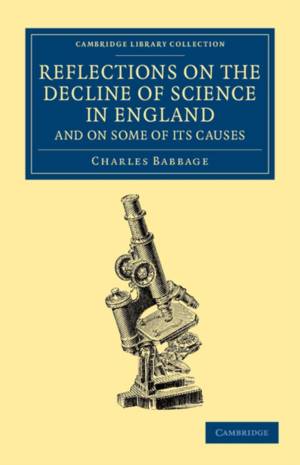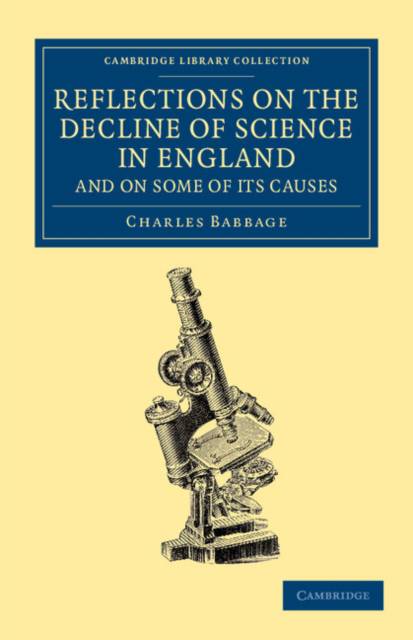
- Afhalen na 1 uur in een winkel met voorraad
- Gratis thuislevering in België vanaf € 30
- Ruim aanbod met 7 miljoen producten
- Afhalen na 1 uur in een winkel met voorraad
- Gratis thuislevering in België vanaf € 30
- Ruim aanbod met 7 miljoen producten
Zoeken
Reflections on the Decline of Science in England, and on Some of its Causes
Charles Babbage
€ 61,45
+ 122 punten
Uitvoering
Omschrijving
The mathematician Charles Babbage (1791-1871) was one of the most original thinkers of the nineteenth century. In this influential 1830 publication, he criticises the continued failure of government to support science and scientists. In addition, he identifies the weaknesses of the then existing scientific societies, saving his most caustic remarks for the Royal Society. Asserting that the societies were operated largely by small groups of amateurs possessing only superficial interest and knowledge of science, Babbage explores the importance of the relationships between science, technology and society. Exposing the absence of a true scientific culture, he states, 'The pursuit of science does not, in England, constitute a distinct profession, as it does in other countries.' These concerns found favour with many, influencing reforms of the Royal Society and leading to the founding of the British Association.
Specificaties
Betrokkenen
- Auteur(s):
- Uitgeverij:
Inhoud
- Aantal bladzijden:
- 250
- Taal:
- Engels
- Reeks:
Eigenschappen
- Productcode (EAN):
- 9781108052658
- Verschijningsdatum:
- 14/02/2013
- Uitvoering:
- Paperback
- Formaat:
- Trade paperback (VS)
- Afmetingen:
- 140 mm x 216 mm
- Gewicht:
- 322 g

Alleen bij Standaard Boekhandel
+ 122 punten op je klantenkaart van Standaard Boekhandel
Beoordelingen
We publiceren alleen reviews die voldoen aan de voorwaarden voor reviews. Bekijk onze voorwaarden voor reviews.








